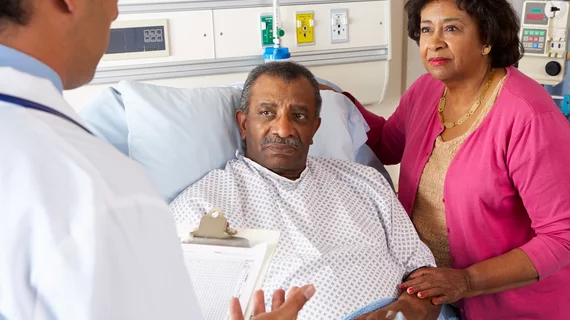Underutilized imaging modality boosts care for patients with suspected coronary artery disease
Stress cardiac MR (stress CMR) imaging could make a big impact on diagnosing and treating patients with suspected coronary artery disease (CAD), according to new findings published in JAMA Cardiology.
The multicenter study tracked data from more than 1,600 patients in 11 different states who underwent stress CMR imaging to evaluate suspected CAD. All patients had no prior history of CAD, 51.4% of the patients were male and the mean patient age was 62 years old.
Overall, the stress CMR imaging helped reclassify 33.5% of all patients and 60.3% of intermediate-risk patients. In addition, the modality “appeared to accurately shift patients into a more appropriate risk category, suggesting that reclassification of patients with suspected CAD is possible across different thresholds of risk.”
“Our study offers further evidence that stress CMR imaging may be well poised to assume the role of a gate-keeping noninvasive test, especially in patients in the low-to-intermediate pretest risk category for cardiovascular death and nonfatal MI” wrote lead author Panagiotis Antiochos, MD, Brigham and Women’s Hospital in Boston, and colleagues. “However, with only approximately 1% of our study cohort in the high pretest risk category for cardiovascular death and nonfatal MI, we lacked statistical power to assess risk reclassification by stress CMR imaging in the high-risk group; this outcome needs to be assessed in a future study.”
Stress CMR imaging, the authors noted, made up just 0.1% of all imaging tests performed in 2018. Could these findings, and others exploring this same topic, help change that trend?
The full JAMA Cardiology analysis is available here.
In 2019, researchers found that stress cardiac MRI scans may help predict fatal heart disease. More information on that study can be found here.

